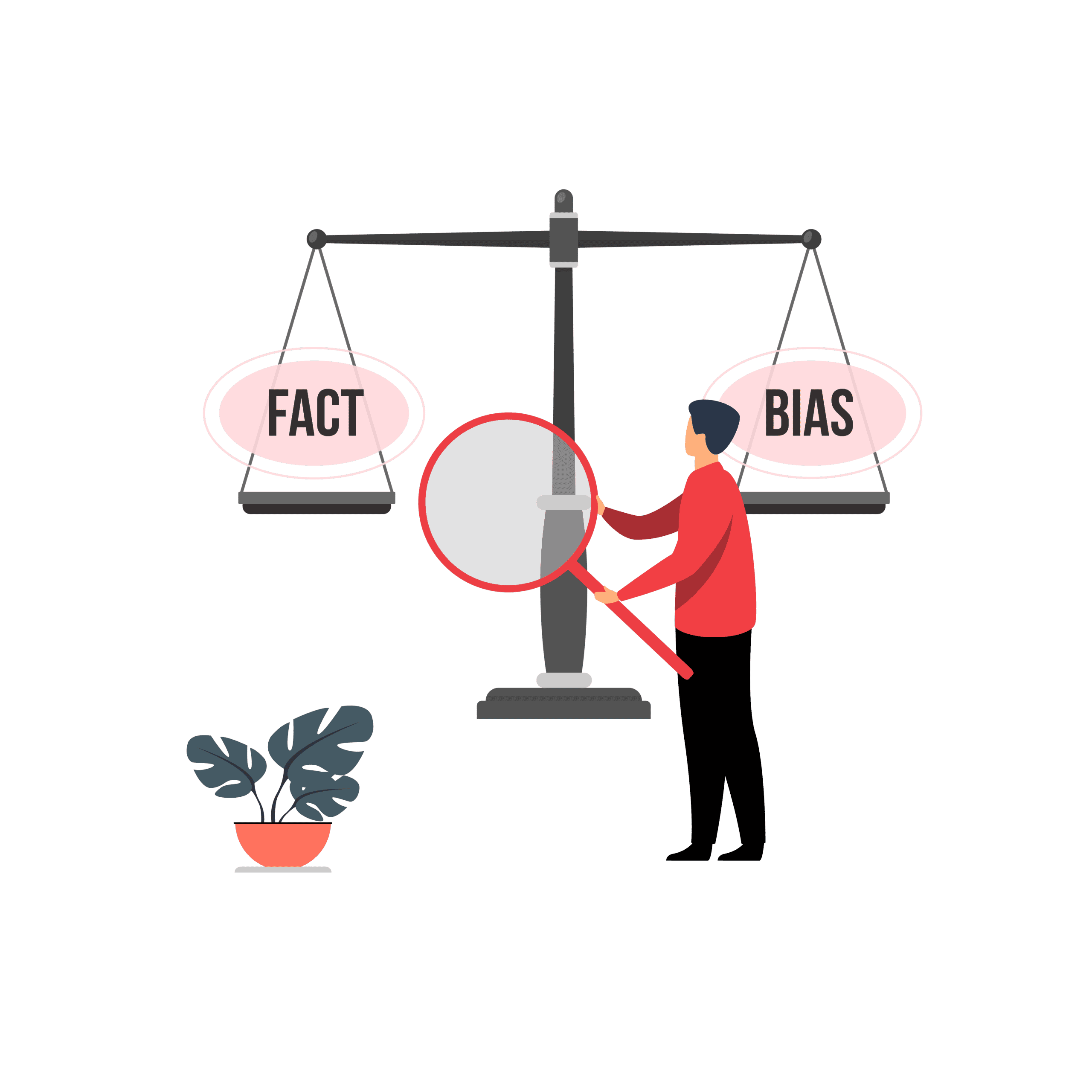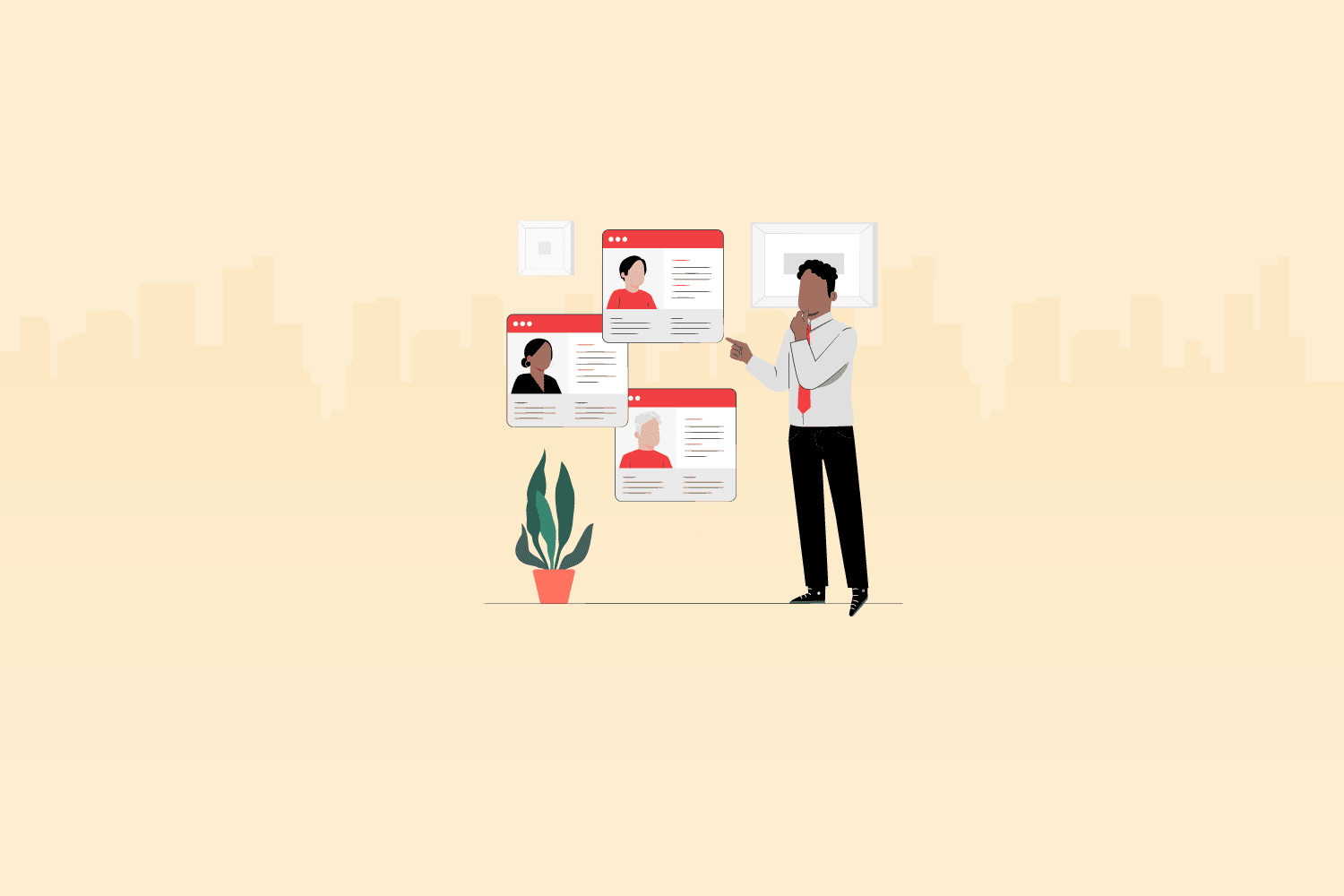The role of a Dispatch Coordinator is crucial in ensuring the smooth operation and coordination of logistics and transportation activities. In today’s rapidly evolving business landscape, the need for efficient dispatch coordination has become even more critical. As per recent analytics, there has been a significant increase in demand for Dispatch Coordinators across industries, indicating their growing importance in optimizing supply chains and enhancing customer satisfaction.
This trend is driven by the recognition that effective dispatch coordination directly impacts operational efficiency, timely delivery, and overall cost-effectiveness. In this competitive era, HR professionals and CXOs play a vital role in identifying and recruiting skilled Dispatch Coordinators who possess the necessary expertise to navigate the complexities of modern logistics. To assist in this process, we have compiled a set of interview questions tailored to evaluate candidates’ proficiency in dispatch coordination.
Here are the top 60 Dispatch Coordinator interview questions to ask job applicants:
15 general interview questions for the Dispatch Coordinator
- Can you explain your understanding of the role and responsibilities of a Dispatch Coordinator?
- Describe your experience in coordinating and scheduling dispatch operations. How do you prioritize tasks and ensure timely deliveries?
- How do you handle unexpected disruptions or changes in the transportation plan? Can you provide an example of a challenging situation you faced and how you resolved it?
- What strategies do you employ to optimize routes and minimize transportation costs while maintaining service quality?
- How do you communicate and collaborate with drivers, warehouse personnel, and other stakeholders involved in the dispatch process?
- Describe your approach to tracking and monitoring shipments. What tools or systems do you utilize, and how do you ensure accurate and real-time updates?
- How do you ensure compliance with relevant regulations, permits, and safety standards in dispatch operations?
- Can you discuss your experience in managing multiple dispatch requests simultaneously? How do you prioritize and allocate resources effectively?
- What metrics do you consider important for evaluating the performance of dispatch operations, and how do you track and analyze these metrics?
- How do you handle customer inquiries, complaints, or issues related to dispatch operations? Can you share an example of a challenging customer situation and how you resolved it?
- Describe a time when you had to handle a high-pressure situation or meet tight deadlines in the dispatch process. How did you handle it, and what was the outcome?
- How do you stay updated on industry trends and advancements in logistics technology? Can you provide examples of how you have applied new technologies to improve dispatch coordination?
- What steps do you take to ensure effective communication and collaboration within the dispatch team? How do you handle conflicts or disagreements among team members?
- How do you ensure accuracy and completeness in maintaining dispatch records, reports, and documentation?
- Can you discuss your experience in managing inventory control and ensuring efficient utilization of resources in dispatch operations?
5 sample answers to general interview questions for the Dispatch Coordinator
- Tell me about your experience in coordinating dispatch operations.
Look for: The candidate’s understanding of dispatch coordination processes, their ability to manage logistics and schedules, and their experience in working with diverse teams.
Example answer: “In my previous role as a Dispatch Coordinator at XYZ Company, I was responsible for overseeing the daily dispatch operations. I effectively coordinated schedules, assigned drivers to routes, and optimized delivery routes for maximum efficiency. I also collaborated with various stakeholders, including drivers, warehouse staff, and customer service representatives, to ensure smooth operations. By implementing a real-time tracking system, I enhanced visibility and reduced response time for customer inquiries. My experience in managing a diverse team and implementing process improvements resulted in a 20% increase in on-time deliveries.”
- How do you handle stressful situations and time-sensitive deadlines?
Look for: The candidate’s ability to remain calm under pressure, prioritize tasks effectively, and meet tight deadlines.
Example answer: “I thrive in high-pressure situations and have developed strong skills for managing stress and meeting deadlines. When faced with a time-sensitive deadline, I start by assessing the situation and breaking down the tasks into manageable steps. I prioritize the most critical tasks and allocate resources accordingly. I also maintain open lines of communication with team members to ensure everyone is on the same page and can collaborate effectively. By staying organized, keeping a level head, and leveraging my problem-solving skills, I have consistently met demanding deadlines and delivered successful outcomes.”
- How do you ensure effective communication with drivers and other team members?
Look for: The candidate’s ability to maintain clear and open lines of communication, their strategies for keeping drivers informed, and their proficiency in leveraging technology for communication purposes.
Example answer: “Communication is crucial in dispatch coordination, and I prioritize maintaining clear and effective communication channels with drivers and team members. I regularly conduct pre-shift meetings to discuss route plans, address any concerns, and provide updates. I also leverage communication tools such as mobile apps and two-way radios to ensure real-time information exchange. Additionally, I establish a culture of open communication where drivers feel comfortable sharing feedback or reporting any issues they encounter. By fostering transparent communication, I have been able to enhance collaboration, minimize errors, and ensure successful delivery operations.”
- Can you share an example of a time when you identified and resolved an operational inefficiency?
Look for: The candidate’s problem-solving abilities, their initiative in identifying inefficiencies, and their track record of implementing effective solutions.
Example answer: “In my previous role, I noticed a significant delay in the dispatch process due to manual paperwork and outdated record-keeping methods. I took the initiative to analyze the workflow and identified an opportunity to streamline operations. I proposed the implementation of a digital dispatch management system that would automate paperwork, centralize data, and provide real-time updates. After gaining buy-in from the management team, I led the project, trained the staff on the new system, and monitored its effectiveness. As a result, we reduced dispatch processing time by 50%, eliminated errors caused by manual data entry, and improved overall operational efficiency.”
- How do you ensure compliance with safety regulations and industry standards?
Look for: The candidate’s knowledge of safety regulations and their experience in implementing and monitoring compliance measures.
Example answer: “As a Dispatch Coordinator, ensuring compliance with safety regulations and industry standards is a top priority. I stay up to date with the latest safety guidelines and regulations and ensure that all drivers are properly trained and certified. I conduct regular safety meetings to reinforce safe driving practices, discuss potential hazards, and address any concerns. I also maintain accurate records of driver certifications, vehicle inspections, and maintenance schedules to demonstrate compliance during audits. By implementing rigorous safety protocols and fostering a safety-conscious culture, I have successfully maintained a spotless safety record and minimized accidents.”
15 behavioral interview questions for a Dispatch Coordinator
- Tell me about a time when you had to handle a high-pressure situation or tight deadline in your previous dispatch coordination role. How did you manage it?
- Describe a situation where you faced a logistical challenge in coordinating dispatch operations. How did you approach and resolve it?
- Can you share an example of a time when you had to prioritize multiple tasks or requests from drivers, team members, and customers simultaneously? How did you handle it?
- Tell me about a time when you identified an inefficiency or bottleneck in the dispatch process. How did you address it, and what results did you achieve?
- Describe a situation where you had to communicate urgent changes or updates to drivers while they were on the road. How did you ensure effective and timely communication?
- Give me an example of a time when you had to resolve a conflict or disagreement between drivers or team members. How did you approach the situation, and what was the outcome?
- Tell me about a time when you had to adapt your dispatch plans due to unexpected circumstances, such as traffic congestion or vehicle breakdowns. How did you handle the situation and minimize disruptions?
- Describe a time when you implemented a new technology or software solution to improve dispatch operations. How did you manage the transition and ensure successful adoption by the team?
- Can you share an example of a time when you had to deal with an upset customer or resolve a delivery-related issue? How did you handle the situation, and what was the outcome?
- Tell me about a time when you had to coordinate dispatch operations for a large-scale event or project. How did you ensure smooth logistics and timely deliveries?
- Describe a situation where you had to manage conflicting priorities or requests from different departments or stakeholders. How did you navigate those challenges and maintain effective coordination?
- Give me an example of a time when you implemented new protocols or procedures to enhance safety in dispatch operations. How did you ensure compliance and promote a culture of safety?
- Tell me about a time when you had to analyze data or metrics related to dispatch operations to identify areas for improvement. How did you leverage the insights and drive positive changes?
- Describe a situation where you had to collaborate with other departments, such as a warehouse or customer service, to ensure seamless operations and customer satisfaction. How did you foster effective cross-functional collaboration?
- Can you share an example of a time when you had to train or onboard new drivers or team members? How did you ensure they were equipped with the necessary skills and knowledge for successful dispatch coordination?
5 sample answers to behavioral interview questions for the Dispatch Coordinator
- Tell me about a time when you had to handle a high-pressure situation or tight deadline in your previous dispatch coordination role. How did you manage it?
Look for: The candidate’s ability to handle stress, prioritize tasks, and effectively manage time during demanding situations.
Example answer: “In my previous dispatch coordination role, we experienced a sudden surge in delivery requests during a holiday season. The volume of orders increased significantly, and we were facing tight deadlines. To manage the situation, I immediately assessed the available resources, prioritized urgent orders, and reallocated drivers to high-priority routes. I communicated the revised schedules to drivers using our mobile app, ensuring they were aware of any changes. Additionally, I proactively reached out to customers to provide updates on potential delays and reassure them of our commitment to their satisfaction. By effectively managing the resources, maintaining clear communication, and keeping a calm demeanor, we successfully met all the deadlines and maintained a high level of customer service.”
- Describe a situation where you faced a logistical challenge in coordinating dispatch operations. How did you approach and resolve it?
Look for: The candidate’s problem-solving skills, ability to think on their feet, and approach to overcoming obstacles in dispatch coordination.
Example answer: “During a particularly heavy snowstorm, our delivery routes were severely impacted due to road closures and hazardous conditions. It posed a significant challenge to coordinate dispatch operations and ensure timely deliveries. To address this, I immediately connected with local authorities and monitored weather updates to stay informed about road conditions. I quickly restructured our delivery routes based on the available safe routes and adjusted the delivery schedules accordingly. I also communicated with drivers in real time, providing them with detailed instructions and alternative routes to avoid any road closures. By closely monitoring the situation, adapting our plans, and maintaining constant communication with drivers, we successfully navigated the logistical challenges and ensured on-time deliveries.”
- Can you share an example of a time when you had to prioritize multiple tasks or requests from drivers, team members, and customers simultaneously? How did you handle it?
Look for: The candidate’s ability to multitask, prioritize effectively, and maintain clear communication with various stakeholders.
Example answer: “In my previous dispatch coordination role, I often encountered situations where I had to juggle multiple tasks and requests simultaneously. For instance, on a busy day, I received urgent requests from drivers for route adjustments, team members seeking information on delivery statuses, and customers with inquiries about their orders. To handle this, I established a prioritization framework based on the urgency and impact of each request. I promptly responded to drivers’ route adjustment needs, ensuring their safety and adherence to the schedule. Simultaneously, I maintained open lines of communication with team members, providing them with real-time updates on delivery statuses. To address customer inquiries, I utilized our customer service system to provide accurate and timely information. By effectively prioritizing tasks and maintaining clear communication channels, I ensured that all stakeholders received the necessary support and achieved successful outcomes.”
- Tell me about a time when you implemented a new technology or software solution to improve dispatch operations. How did you manage the transition and ensure successful adoption by the team?
Look for: The candidate’s experience in implementing technology solutions, change management skills, and their ability to drive adoption among team members.
Example answer: “In my previous role, we recognized the need to upgrade our dispatch management system to streamline operations and enhance efficiency. I led the implementation of a new cloud-based dispatch software that automated various tasks and provided real-time tracking capabilities. To ensure a successful transition, I collaborated closely with the software vendors to customize the system to our specific needs. I also conducted comprehensive training sessions for the team, addressing any concerns and providing hands-on practice with the new system. Additionally, I appointed internal champions who acted as go-to resources for team members during the initial stages. By actively involving the team in the implementation process, addressing their questions and concerns, and providing ongoing support, we achieved a seamless transition, improved operational efficiency, and enhanced overall coordination.”
- Describe a time when you had to coordinate dispatch operations for a large-scale event or project. How did you ensure smooth logistics and timely deliveries?
Look for: The candidate’s experience in managing complex logistics, attention to detail, and ability to coordinate resources effectively.
Example answer: “During a large-scale music festival, I was responsible for coordinating dispatch operations to ensure timely deliveries of equipment and supplies to multiple stages and vendors. To ensure smooth logistics, I developed a detailed delivery schedule, considering factors like stage setup timelines, traffic conditions, and vendor requirements. I communicated the schedule and delivery instructions to drivers, providing them with maps and contact information for each location. Additionally, I maintained constant communication with event organizers, vendors, and stage managers to anticipate any last-minute changes or adjustments. By meticulous planning, effectively communicating, and closely monitoring the operations, we achieved seamless logistics, and on-time deliveries, and contributed to the overall success of the event.”
15 personality interview questions for the Dispatch Coordinator
- How do you handle ambiguity or unexpected changes in a fast-paced work environment?
- Describe your approach to working as part of a team in a collaborative setting.
- How do you stay organized and manage your time effectively when handling multiple tasks or projects?
- Can you share an example of a time when you demonstrated attention to detail in your work?
- How do you handle situations where you need to make quick decisions under pressure?
- Describe a time when you had to handle a difficult or demanding customer. How did you handle the situation?
- How do you prioritize customer satisfaction while also ensuring operational efficiency and adherence to protocols?
- Can you provide an example of a time when you successfully resolved a conflict within a team?
- How do you approach building and maintaining relationships with external stakeholders such as drivers or vendors?
- Describe your communication style and how you adapt it to different audiences or situations.
- Can you share a situation where you took the initiative to identify and implement process improvements in your previous role?
- How do you stay updated on industry trends, regulations, or best practices related to dispatch coordination?
- Describe a time when you had to manage competing priorities from different departments or stakeholders. How did you navigate those challenges?
- How do you approach training and onboarding new team members or drivers to ensure their success in their roles?
- Can you provide an example of a time when you had to remain calm and composed in a high-stress situation? How did you handle it?
5 sample answers to personality interview questions for Dispatch Coordinator
- How do you handle ambiguity or unexpected changes in a fast-paced work environment?
Look for: The candidate’s ability to adapt to changing circumstances, flexibility, and their problem-solving approach.
Example answer: “I thrive in fast-paced environments and am comfortable handling ambiguity and unexpected changes. When faced with unexpected circumstances, I remain calm and quickly assess the situation. I prioritize tasks based on their urgency and impact, seeking input from relevant stakeholders when necessary. I am resourceful and proactive in finding solutions, and I leverage my strong problem-solving skills to address challenges effectively. By maintaining open lines of communication, staying flexible, and approaching changes with a positive mindset, I have successfully managed unexpected situations and ensured smooth operations.”
- How do you approach building and maintaining relationships with external stakeholders such as drivers or vendors?
Look for: The candidate’s interpersonal skills, ability to foster collaboration, and their customer relationship management abilities.
Example answer: “Building and maintaining strong relationships with external stakeholders is crucial in the role of a Dispatch Coordinator. I believe in open and transparent communication as the foundation of successful relationships. I establish rapport with drivers and vendors by actively listening to their concerns, addressing their needs promptly, and providing regular updates. I strive to create a collaborative environment where stakeholders feel valued and heard. Additionally, I prioritize proactive communication to ensure that everyone involved is on the same page. By demonstrating respect, professionalism, and a genuine commitment to their success, I have been able to build strong and lasting relationships with external stakeholders.”
- Can you provide an example of a time when you took the initiative to identify and implement process improvements in your previous role?
Look for: The candidate’s proactiveness, ability to identify opportunities for improvement, and track record of implementing effective changes.
Example answer: “In my previous dispatch coordination role, I noticed that our communication process between drivers and customer service representatives was inefficient, leading to delays and misunderstandings. I took the initiative to propose a new communication system using a mobile app that allowed real-time updates and improved transparency. I researched different options, presented a cost-benefit analysis to management, and gained approval to implement the new system. I coordinated training sessions for drivers and customer service representatives to ensure smooth adoption. The new system significantly reduced communication gaps, improved response times, and enhanced overall customer satisfaction. By identifying areas for improvement, proactively seeking solutions, and driving implementation, I continuously strive to optimize processes and achieve better results.”
- How do you approach training and onboarding new team members or drivers to ensure their success in their roles?
Look for: The candidate’s training and development skills, their ability to foster a positive learning environment, and their commitment to team success.
Example answer: “When onboarding new team members or drivers, I prioritize creating a comprehensive training program that sets them up for success. I start by providing them with a clear overview of our processes, protocols, and technology systems. I believe in a hands-on approach, so I offer practical training sessions where they can familiarize themselves with our dispatch software and tools. I encourage questions and provide continuous feedback and support throughout the onboarding process. I also assign a mentor or a buddy who can provide additional guidance and support. By investing time and effort into training and creating a positive learning environment, I ensure that new team members or drivers feel confident and prepared in their roles.”
- Can you share a situation where you had to remain calm and composed in a high-stress situation? How did you handle it?
Look for: The candidate’s ability to manage stress, their emotional resilience, and their capacity to make sound decisions under pressure.
Example answer: “In a high-stress situation, such as a significant delivery delay due to unforeseen circumstances, it’s crucial to remain calm and composed. One example of such a situation was when a major road accident caused a disruption in our delivery schedule, and customers were becoming increasingly impatient. I immediately took charge of the situation, ensuring that I had accurate information about the incident and the estimated impact on our operations. I proactively reached out to affected customers, providing them with transparent updates and alternative solutions. By remaining calm, addressing concerns empathetically, and providing realistic timelines, I was able to manage customer expectations and minimize any potential negative impact. Through effective communication and a calm demeanor, I successfully resolved the situation while maintaining a positive customer experience.”
When should you use skill assessments in your hiring process for Dispatch Coordinator?
Skill assessments should be used in the hiring process for Dispatch Coordinators to evaluate candidates’ abilities and ensure they possess the necessary skills for the role. Assessments are important because they provide objective measures of a candidate’s competency, allowing employers to make informed decisions based on demonstrated skills rather than relying solely on resumes or interviews. By incorporating skill assessments, employers can identify candidates who have the specific skills required for effective dispatch coordination, ultimately leading to more successful hires.
There are several assessments that can be used to assess skills for Dispatch Coordinators. These may include:
- Dispatch Coordination Simulations
Simulations can be used to recreate real-life scenarios that Dispatch Coordinators encounter. Candidates are evaluated on their ability to prioritize tasks, make quick decisions, communicate effectively, and manage logistics in a dynamic environment.
- Problem-Solving and Critical Thinking Tests
These tests assess candidates’ problem-solving skills, analytical thinking, and ability to make informed decisions. They can include hypothetical scenarios where candidates are required to analyze information, identify potential issues, and propose solutions.
- Communication and Interpersonal Skills Assessments
Dispatch Coordinators often interact with various stakeholders, including drivers, team members, and customers. Assessments focused on communication and interpersonal skills evaluate candidates’ ability to communicate clearly, listen actively, and build positive relationships with others.
- Time Management and Organization Assessments
Dispatch Coordinators need to manage multiple tasks and prioritize effectively. Assessments in this area evaluate candidates’ ability to handle time-sensitive situations, manage deadlines, and stay organized in a fast-paced environment.
Employers should select skill assessments that align with the specific requirements and challenges of the Dispatch Coordinator role, ensuring they accurately measure the essential skills needed for success in the position.
Use our interview questions and skill tests to hire a talented Dispatch Coordinator
Unlock the potential of your hiring process with Testlify’s comprehensive skill assessments and interview questions specifically designed for Dispatch Coordinators.
Our extensive test library offers a wide range of assessments, including cognitive function, personality, situational judgment, programming, and more. By leveraging these assessments, you can objectively evaluate candidates’ abilities, ensuring you shortlist the most talented individuals efficiently.
To further enhance your hiring process, we invite you to book a free 30-minute live demo. Our expert team will guide you through the platform, showcasing relevant skill tests tailored to your hiring needs. With our support, you can streamline candidate selection, saving valuable time and resources.
Ready to find the perfect fit for your Dispatch Coordinator role? Testlify provides the tools you need to make informed hiring decisions. Explore our skill assessments and interview questions today to uncover exceptional talent for your team.








